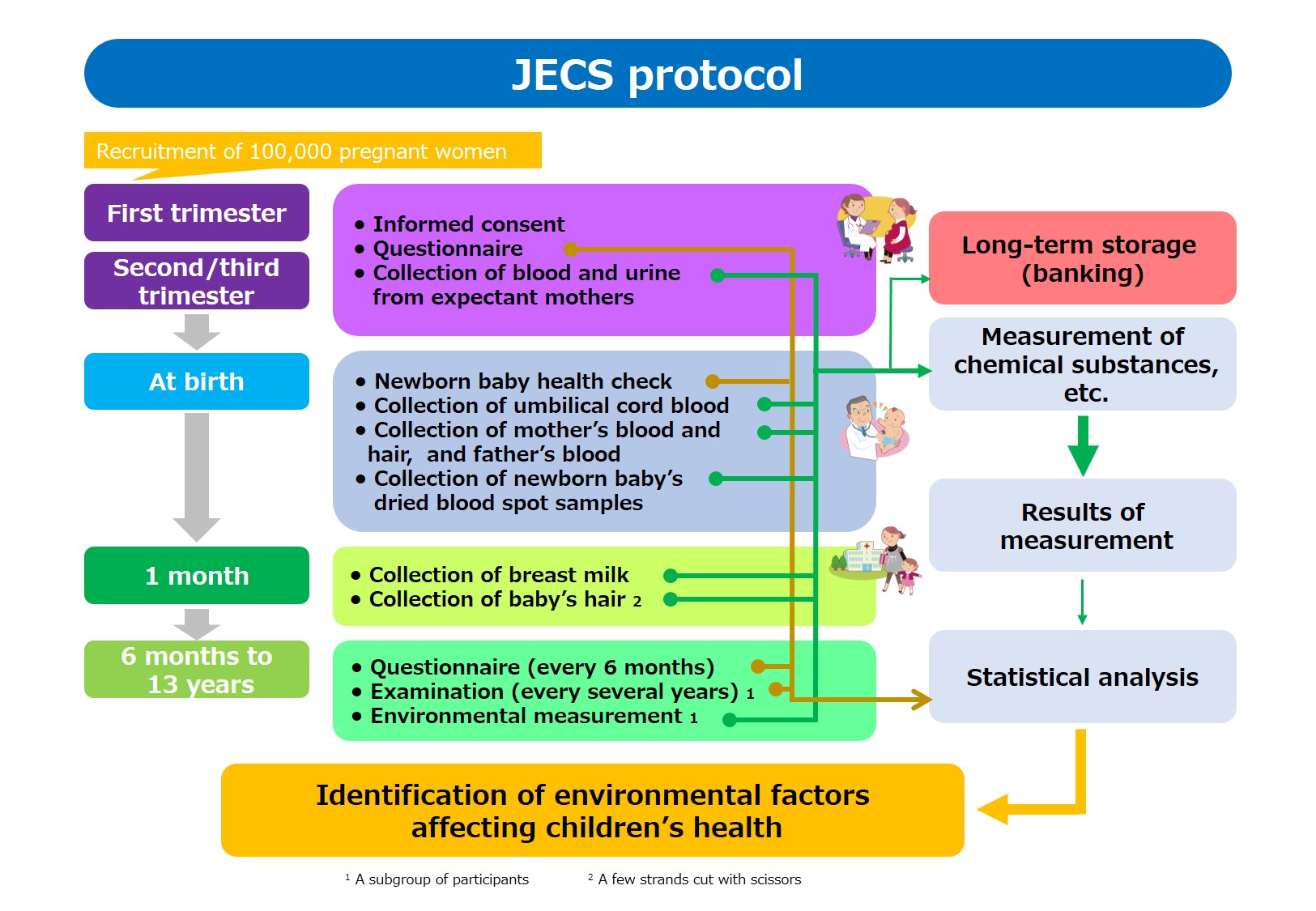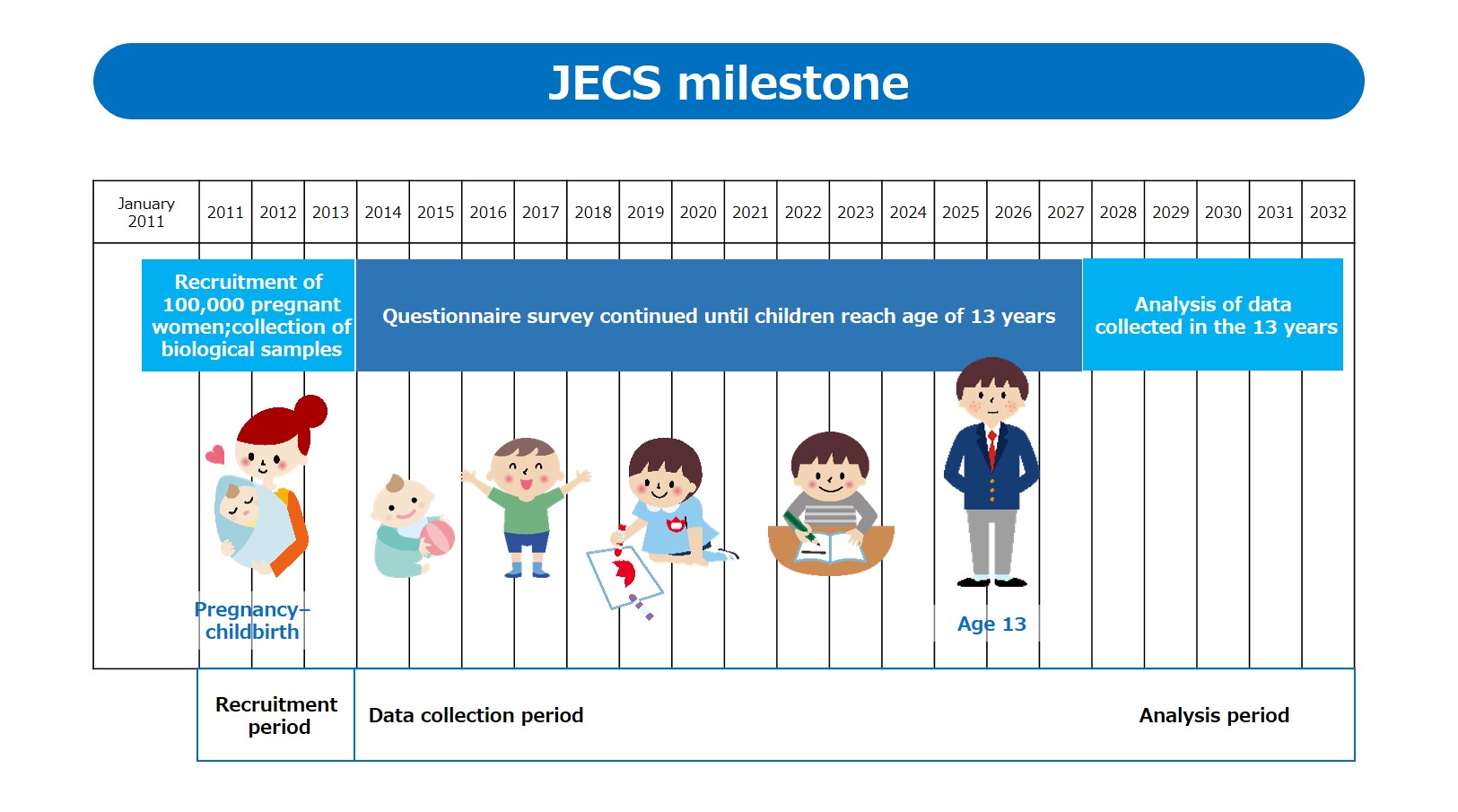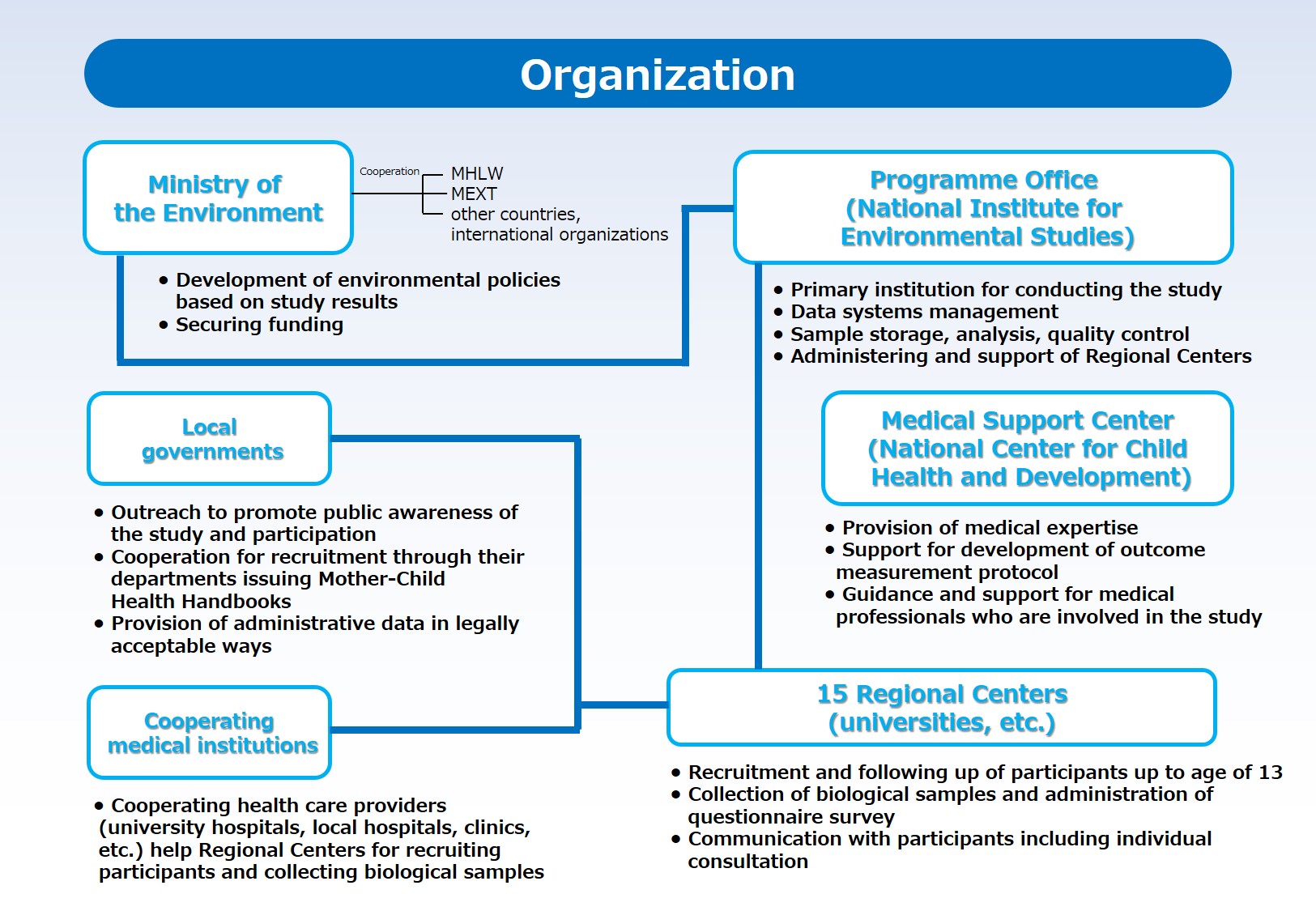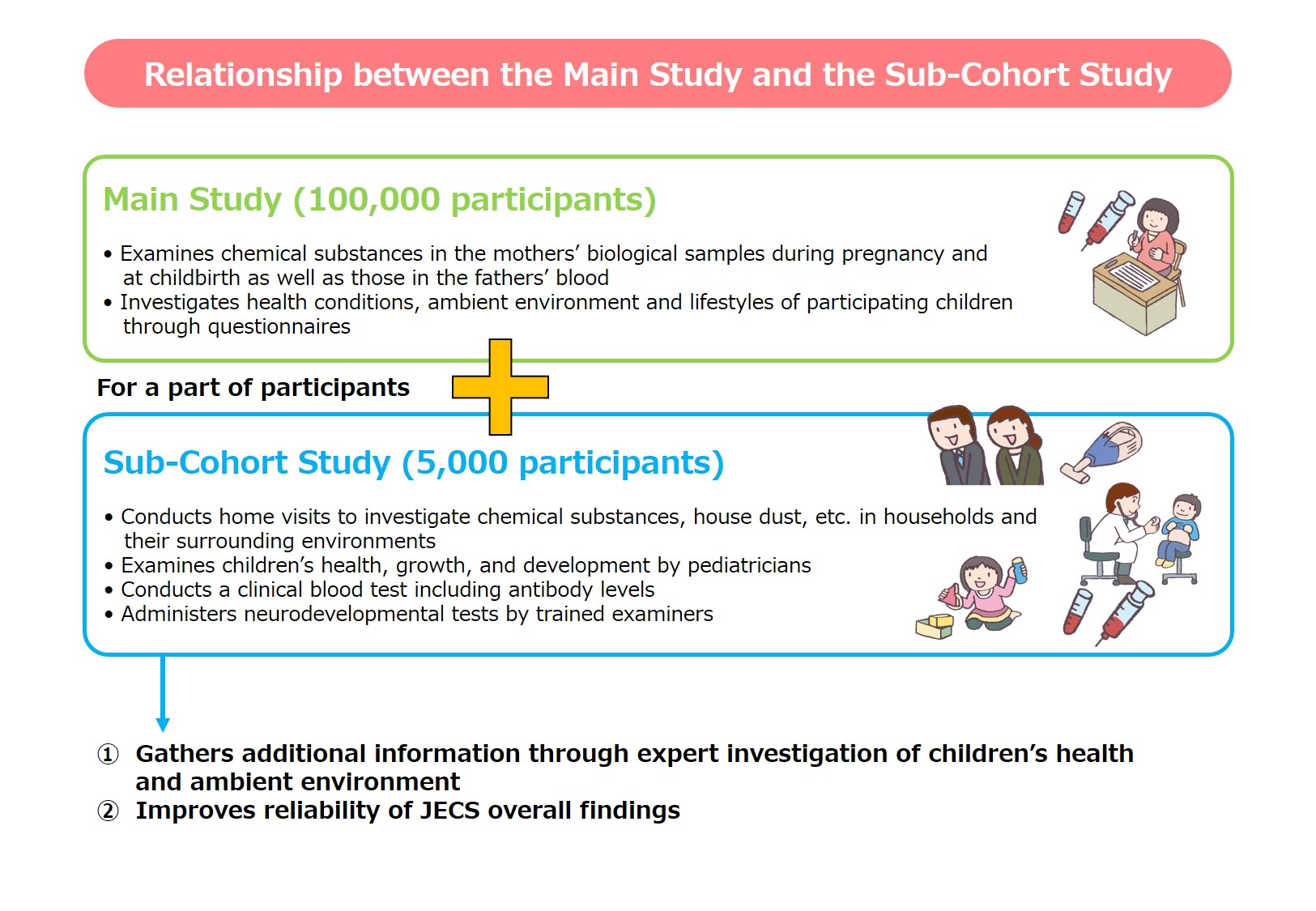JECS is a birth cohort study. It measures the environmental exposures during pregnancy and through childhood, while examining children's health periodically until they become 13 years of age.
As a children's environmental health study, JECS is unprecedented in Japan in both scale and duration. The study participants are 100,000 mother-child pairs residing in 15 regions throughout Japan.
JECS protocol
JECS always gives first priority to health of participating children and their parents.
Participants are asked to fill out questionnaires and to provide biological samples including blood, urine, and hair. Their records of health and medical treatment are also examined.

The samples and data provided by participants are retained for long-term storage to be used for future research, even after analyzing in the JECS.
The sample and data are stored under strict monitoring after removing all personally-identifiable information and assigning referral identification numbers. The access to the data and sample is also restricted to authorized personnel.
Survey period
JECS is scheduled to continue up to 2027, with the first three years from its launch in January 2011 being a recruitment period followed by a 13-year follow-up period.
JECS was launched in January 2011 . In the first three years of the study, 100,000 expectant mothers were recruited, and their biological samples, e.g. blood and urine, were collected during pregnancy and at childbirth. After then, the children are followed through questionnaire surveys until they reach the age of 13 years. While the study progresses, the collected data are analyzed. The data will also continue to be analyzed for five years after the data collection.

Organization
JECS was planned by Ministry of the Environment (MOE), and is being implemented under the leadership of the Programme Office, which is established in the National Institute for Environmental Studies (NIES), with the Medical Support Center, which is situated in the National Center for Child Health and Development (NCCHD).
JECS is conducted jointly with Regional Centers located in universities and institutions in 15 regions throughout the country. In its implementation, the MOE co-operate with Ministry of Health, Labour and Welfare (MHLW) and Ministry of Education, Culture, Sports, Science and Technology (MEXT) as well as research organizations in other countries and international organizations such as the World Health Organization (WHO).

Reference:Regional Centers
Sub-Cohort Study and Adjunct Studies
In addition to the Main Study encompassing all participants, JECS includes the Sub-Cohort Study with a smaller subset of participants, and adjunct studies conducted independently by Regional Centers.
Sub-Cohort Study
A part of the Main Study participants is asked to participate in the Sub-Cohort Study to investigate their health and ambient environment of their children in greater detail.

Adjunct Studies
The Adjunct Studies are designed and conducted independently by Regional Centers extramural funding. The participants are a part of the JECS participants.
